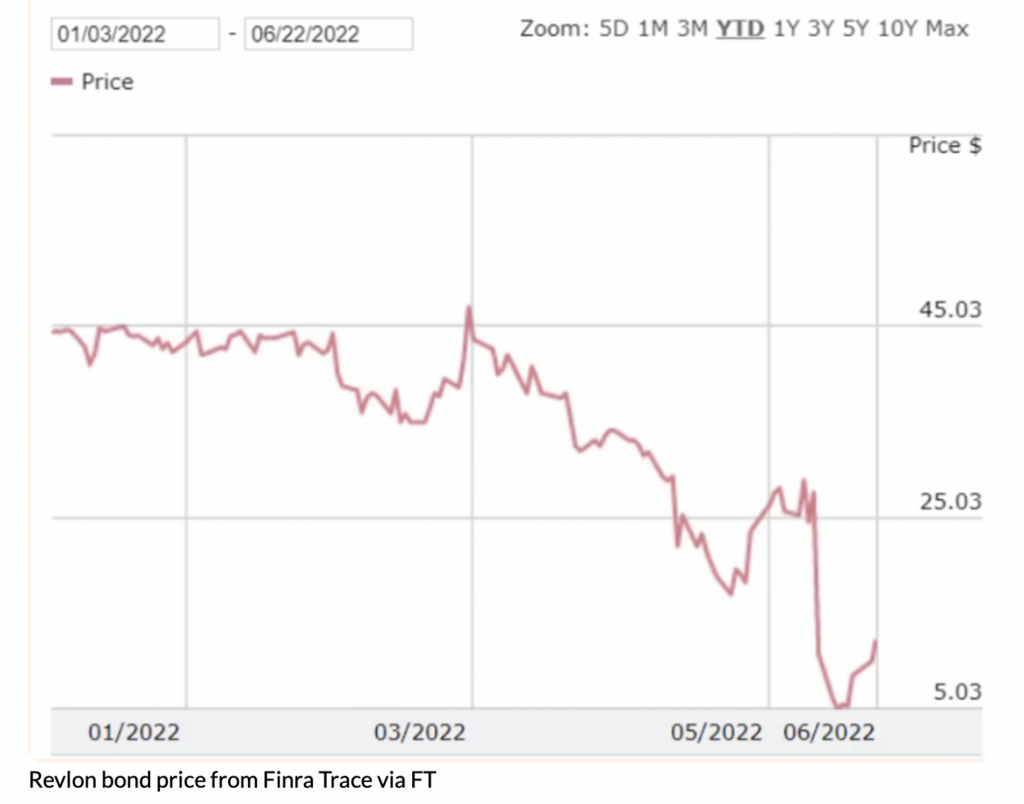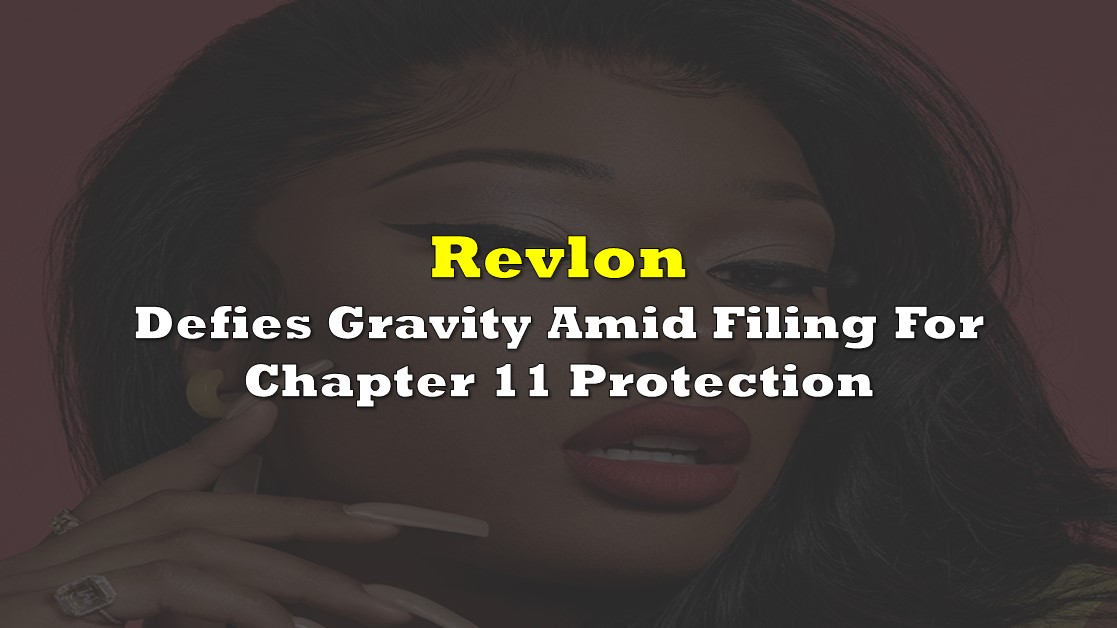Investors are feverishly debating whether the significant declines in the broad indices and even bigger falls in many of the market’s high fliers signal that the stock market is at or near a bottom, and whether the most speculative excesses have in turn been successfully flushed out of the markets. If a gauge of investors’ taking a more sober view of stocks is a newfound reluctance to value a risky stock using the unreasonably positive assumptions, developments in Revlon, Inc. (NYSE: REV) suggest that the market’s decline has failed to wring out all the market’s excessive animal spirits. This could mean more overall downside risk for global equity markets.
After the market close on June 16, the cosmetics giant, which was founded nearly a century ago, filed a voluntary petition for reorganization under Chapter 11 of the U.S. bankruptcy code. Revlon’s crushing US$3.4 billion debt burden has severely crimped its cash flow; operating cash flow totals only US$24 million over the last twelve months. In turn, these linked problems have severely limited the company’s operating flexibility, among other things making it difficult to source a “sufficient and regular supply of raw materials.”
A Chapter 11 bankruptcy allows a company to stay in business as it restructures its obligations. Obligations to creditors must take precedence over the wishes of shareholders in such a proceeding, and a court-approved reorganization typically contains little to no compensation for existing shareholders. As a consequence, the share prices of companies which file for Chapter 11 protection typically decline markedly, reflecting the likelihood of limited shareholder recoveries.
| (in millions of US dollars, except for shares outstanding) | Twelve Months Ended March 31, 2022 | 1Q 2022 | 4Q 2021 | 3Q 2021 | 2Q 2021 |
| Net Sales | $2,113.3 | $479.6 | $615.2 | $521.1 | $497.4 |
| Adjusted EBITDA | $313.1 | $58.4 | $108.4 | $82.4 | $63.9 |
| Adjusted Operating Income | $180.4 | $29.0 | $75.9 | $47.3 | $28.2 |
| Adjusted Diluted EPS | ($2.55) | ($1.14) | $0.34 | ($0.74) | ($1.01) |
| Operating Cash Flow | $24.1 | $6.7 | $75.7 | ($47.4) | ($10.9) |
| Cash | $70.0 | $70.0 | $102.4 | $73.3 | $109.8 |
| Debt | $3,423.4 | $3,423.4 | $649.0 | $3,466.7 | $3,429.9 |
| Fully Diluted Shares Outstanding (Millions) | 54.3 | 54.3 | 54.0 | 54.0 | 54.0 |
Revlon stock has reacted spectacularly in the opposite direction of the logic described above. The stock closed at US$1.95 on June 16; it currently trades at US$7.95, up 308% since the announcement.
Optimistic Revlon investors are apparently banking on one of two possibilities. First, investors may believe that the outcome of its Chapter 11 proceeding may have parallels to the rental car company Hertz. Hertz filed for Chapter 11 protection in 2020, prompting the stock to trade as low as US$0.42. However, used car prices soared during the pandemic, boosting Hertz’s asset value. In 2021, three hedge funds investors rather improbably agreed to purchase Hertz out of bankruptcy for US$8 per share. Perhaps Revlon investors are hoping for a similar surprise.
Second, rumors have circulated that Indian conglomerate Reliance Industries could make a bid for Revlon. Reliance supposedly has some interest in entering the retail cosmetics business, but there has been nothing announced yet.
To this point, the bond market is not buying either positive scenario. Some of Revlon’s unsecured debt recently traded at 10-15 cents on the dollar. If Revlon stock has value, these bonds should trade near par.

Factoring in its current US$7.95 share price, Revlon’s enterprise value is around US$3.7 billion. Taken against its modest operating cash flow over the twelve months ended March 31, 2022, the shares look richly priced. Even a potential aggressive acquirer may find it difficult to value the company at close to its current price.
Revlon, Inc. last traded at US$7.95 on the NYSE.
Information for this briefing was found via Edgar and the sources mentioned. The author has no securities or affiliations related to the organizations discussed. Not a recommendation to buy or sell. Always do additional research and consult a professional before purchasing a security. The author holds no licenses.




